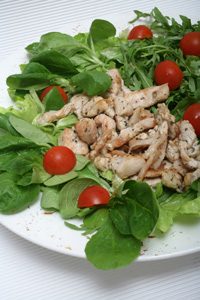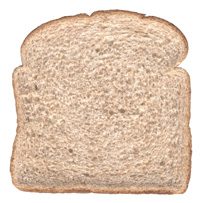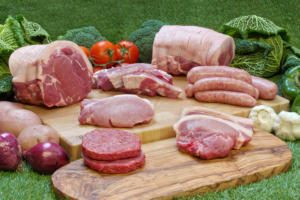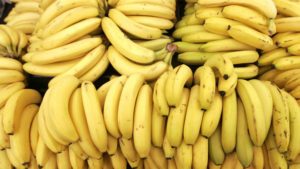
Eating healthy and trying to lose a few pounds can just be downright confusing. We are constantly bombarded with new diets, new supplements and the latest drugs that claim a quick and easy approach for weight loss. The problem is, in my opinion, diets, supplements, and drugs don’t work for long-term health and weight loss.
Ever wonder why you become ravenous soon after eating a piece of fruit? What about why your stomach becomes upset after eating a meal? During my studies in nutrition, I learned an interesting method of eating that has worked for many people: food combination. It is a way of eating that pairs certain foods together for better digestion and assimilation within the body.
Food combination is based on the fact that certain foods are digested differently in the body; therefore, in order for the food to be digested properly, some foods should not be eaten together.

For example, carbohydrate digestion starts in the mouth by the enzyme amylase, found in the saliva, where the carbohydrates are broken down into simple sugars. Once the food is swallowed, it reaches the acidic domain of the stomach where amylase stops working. Later, when the food reaches the more alkaline environment of the small intestines, the pancreas secretes the second set of amylase enzymes, which completes the digestion of carbohydrates.

Protein digestion does not start in the mouth, it starts in the stomach where the environment is acidic enough to break down proteins into amino acids. The hydrochloric acid found in the stomach starts the enzyme pepsin, which is responsible for breaking down complex proteins into smaller groups of amino acids, known as peptides. Once this happens, the pancreas produces peptidase enzymes, which break down the peptides into individual amino acids that are ready for absorption into the small intestines.

Some fruits do not ferment as quickly as others in the stomach, such as bananas, coconuts, and apples. These fruits are tolerable to eat with complex carbohydrate foods, like oats, brown rice and millets. Some foods naturally have a combination of proteins and carbohydrates. Eating foods such as lentils, beans, vegetables, nuts and seeds together is good. Avoid eating protein-dense foods, like meat, in combination with carbohydrates or simple sugars.
Some fruit can be digested in about thirty minutes in comparison to complex proteins, found in meat, which take about two to three hours for complete digestion. Because of this, these foods should not be eaten together.
For good health, it is also important to keep your acid-alkaline balance in check. Acid forming foods are all animal products and alkaline forming foods are generally all fruits, vegetables, legumes, nuts and seeds. Individuals with more acidic blood are known to be more prone to illness. Refined and processed foods should be avoided completely; these sugar-packed foods cause a sudden rise in the blood sugar levels that our bodies are not equipped to handle. These foods cause havoc with our hormones by putting them into an emergency mode and additionally these refined sugars feed the harmful microorganisms in our guts.
To keep your digestive system healthy and to receive the most nutrients from the foods you eat, you should follow these guidelines:
- eat vegetables with starches and/or grains
- avoid refined sugars
- eat meat in moderation, preferably by itself or with vegetables
- eat fast-fermenting fruits by themselves
To even simplify it further, pay attention to your body. After eating, be aware of how you feel. Do you have energy or do you feel sleepy? Do you feel like you are digesting your food properly, or do you have acid reflux or some other stomach discomfort? These are clues as to how well you are eating for your individual needs. As you listen to your body and address any eating and/or health issues, your health will improve and the excess weight will naturally come off.
